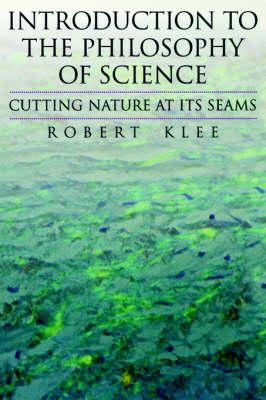Full Product Details
Author: Klee
Publisher: Oxford University Press Inc
Imprint: Oxford University Press Inc
Dimensions:
Width: 15.60cm
, Height: 1.40cm
, Length: 23.50cm
Weight: 0.380kg
ISBN: 9780195106114
ISBN 10: 0195106113
Pages: 272
Publication Date: 12 December 1996
Audience:
College/higher education
,
Tertiary & Higher Education
Format: Paperback
Publisher's Status: Active
Availability: To order

Stock availability from the supplier is unknown. We will order it for you and ship this item to you once it is received by us.
Reviews
"""This book and Scientific Inquiry: Readings in the Philosophy of Science (edited by Robert Klee, OUP, 1998) provide an excellent introduction to the complex issues in philosophy of science. They are responsible to the challenging questions in the field and user-friendly at the same time. I couldn't teach the course without them.""--Richard Rice, Loma Linda University ""An absolutely excellent text; clear, insightful, thorough. Klee has performed a real service to the field.""--J. Ismael, University of Arizona ""This book contains good, interesting material in the philosophy of science and would be quite useful for such a course.""--Stephen Joseph, Framingham State College ""Intelligent, lucid, and charmingly written....All ten chapters are written with a clarity and simplicity that make the book a pleasure to read and will make it a good text for an introductory course in the philosophy of science. I recommend this book most highly.""--Max Hocutt, Behavior and Philosophy ""...an entirely refreshing study both for its biological emphasis (the immune system) and its sophisticated treatment of contemporary issues and positions in the philosophy of science....unusually well written.""--Pete A. Y. Gunter, University of North Texas ""Excellent introduction to the issues and figures surrounding the debate over scientific realism.""--Craig Payne, Indian Hills Community College ""Well written, comprehensive, and interesting.""--Hugh Curtler, Southwest State University, MN ""An excellent and comprehensive examination of recent developments in the philosophy of science.""--James Maffie, Colorado State University"
In this refreshingly opinionated introduction, ...Klee exposes the overall poverty of many anti-realist attacks on science and shows how a considered realism is still the best opinion. His book has quirks aplenty which make it stand out from others and make it both an excellant introduction to the subject and an enjoyable fresh look for those already familiar with the debates. Stephen Mumford, Department of Philosophy, University of Nottingham Mind Vol 110 an engaging, accessible and comprehensive introductory text in the philosophy of science which manages to avoid sailing over the head of the beginner philosophy student without talking down to the working professional. I suspect that many teachers of the philosophy of science will, along with their students, find something in this book to stimulate their own thinking about the subject ... One particularly impressive feature of the text is its effective use of immunology as a case study ... Klee writes with the confident authority of a philosopher who knows immunology well and knows how to apply its realistic features, history and examples to philosophical argument. P Kyle Stanford, Stud Hist Phil Sci Vol 30 no2 1999



